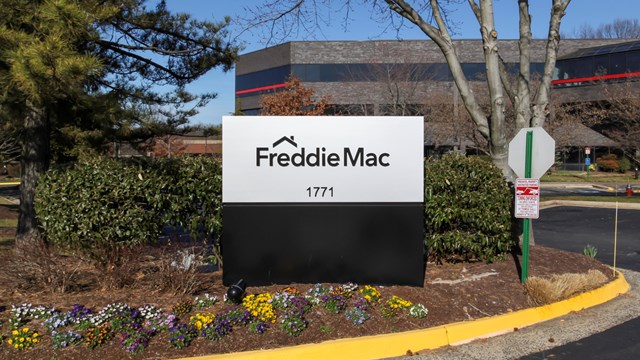New York City has been in the midst of a real estate boom for the last several years. Even with the economy in recession and the lingering effects of 9/11, homeowners have seen their apartments double, even triple in value in as little as five to ten years. To tap in to the ballooning equity, New Yorkers often take out home equity loans or do a cash-out refinancing. But for homeowners over the age of 62, on a fixed income, incurring an additional monthly expense may not be an attractive option. For this group of homeowners, provided that their co-op board allows it, a reverse mortgage can utilize the home's equity and provide needed cash without ever requiring a monthly repayment.
A reverse mortgage, as the name implies, works in the opposite way of a traditional mortgage. While a traditional mortgage decreases over time as the borrower's equity increases, a reverse mortgage loan, which has no monthly payment requirement, increases over time while the borrower's equity position decreases. Taking out a reverse mortgage requires no financial records, credit history or medical reports and puts tax-free money back into the hands of the shareholder or unit owner or owners that are borrowing the money. The borrower, who must be age 62 or older, can remain in their home without having to repay the loan, which only becomes due when the home is sold or if the borrower dies or moves out.
There are currently three types of reverse mortgages available. The most popular, according to Jim Savoca of Financial Freedom Senior Funding Corporation - a lender specializing in reverse mortgages - is the Home Equity Conversion Mortgage, or HECM. The HECM is insured by the U.S. Department of Housing and Urban Development (HUD) and similar to a traditional mortgage, the proceeds are disbursed in the form of a lump sum, line of credit, automatic monthly payment, or any combination of the three.
The Fannie Mae Home Keeper is a similar product, but is not backed by HUD. The main difference between the two products is the lending guidelines. "In the New York metropolitan area homeowners generally fare better with the HECM product because HECMs have lower loan-to-value requirements," says Savoca. Both the HECM and Fannie Mae reverse mortgages are only available to owners of single-family homes and condominiums.
Until about two years ago, co-op shareholders weren't eligible for reverse mortgages, but now they can opt for what's called a Cash Account, currently only offered by Financial Freedom, which is a subsidiary of Lehman Brothers Bank, FSB. "The Cash Account not only lends to co-op shareholders, but is also the product of choice for other high-value properties, because competing products will not fund as much on high-value properties or on co-ops," says Savoca. The HUD product, believes Savoca, does not perform as well for high equity properties because HUD sets property value limits on which the loan amount is based, while the Cash Account does not set any property value limits.
In the New York metropolitan area, the standard mortgage limit is currently set at $290,319, and the Fannie Mae maximum mortgage limit is $322,700. For example, if your neighbor's apartment is valued at $290,319 and your apartment is valued at $400,000, and all other things being equal such as age of owners and amount of equity, a HECM loan would provide the same loan amount to each borrower.
This, says Savoca, contrasts with the Cash Account, which does not limit the value. Proceeds from the Cash Account can be used for any purpose, and can be taken as a lump sum or as a line of credit, much like a traditional mortgage or refinancing. The Cash Account, however, currently does not offer the automatic monthly, fixed-draw option.
A co-op shareholder will be required in most cases to get board approval when taking out a reverse mortgage loan on their apartment. And in some cases, boards may have restrictions against a shareholder pursuing this type of financial alternative.
"Most co-op boards don't understand reverse mortgages and a lot of building's bylaws may not allow them," says David Strause, a senior mortgage broker with Guardhill Financial Corporation in Palm Beach, Florida. "Co-ops," he adds, "like the fact that the shareholder is getting an income stream from the reverse mortgage."
This extra income can help ensure that monthly maintenance payments to the co-op are made in a timely fashion. But, Strause continues, given the lucrative value of Manhattan real estate these days, co-ops might also be concerned that the shareholder is giving up too much equity. "Co-ops are slowly starting to adopt policies on reverse mortgages but they tend to be very conservative. Shareholders should find out what their co-op's policy is on reverse mortgages before trying to apply for a loan.
One of the benefits to a reverse mortgage product is that there is no monthly payment required. "Interest builds during the life of the loan," says Glenn Petherick, director of communications for the National Reverse Mortgage Lenders Association (NRMLA). Full repayment is required at the time all borrowers on the reverse mortgage no longer use the home as their primary residence or upon the death of the last borrower on the loan. "Upon death, the estate can decide what to do usually within a six month time frame," says Petherick, adding that at that point an appraiser would determine the value of the property, which would be the estate's maximum liability to the lender. In the event the loan amount exceeds the value of the property, Petherick says FHA makes up any loss that the lender incurs.
The amount of the loan is determined by three factors, the age of the borrower or co-borrowers; the interest rates and the adjusted value of the home; and third, the geographic location of the home on a county-by-county basis.
If there is more than one name on the title or stock certificate, both applicants must be over the age of 62. The equity is greater for an older borrower. "The older you are, the more money you will receive," says Petherick. And, when rates are low, "you can borrow more," says Petherick.
Loan amounts vary greatly based on the above factors. For example, currently, two co-borrowers aged 64 and living on New York's Upper East Side with a condominium valued at $1 million and no first mortgages could borrow $144,248 under the HECM; $37,459 from the Fannie Mae Home Keeper, and $114,124 from the Financial Freedom Cash Account. These amounts cannot be combined and only one loan per property is permitted.
Two borrowers with the same type of property but at age 84 could borrow $205,947 from HECM, $148,014 from Fannie Mae, and $361,224 from the Cash Account. These figures are estimates based on the reverse mortgage calculator function available at Financial Freedom's Web site, www.ffsenior.com.
In general, says Savoca, single borrowers will qualify for higher loan amounts than co-borrowers, and closing costs will vary based on the type of loan - and can be financed into the loan. Savoca says the Cash Account currently has a flat closing fee of $2,209 while HUD closing costs in the metropolitan New York area are between $1,300 and $1,500.
One of the drawbacks to a reverse mortgage might be higher closing costs and origination fees. According to www.reversemortgage.com, the origination fee for a HECM borrower can't exceed $2,000 or 2 percent of the maximum income claim amount (the FHA loan limit), whichever is greater. In 2004, the 2 percent limit ranges between $3,204 for lower end properties (equivalent to 2 percent of a property's mortgage limit of $160,176) to $5,806 (2 percent of $290,319) for the higher priced homes often found in the New York metropolitan area. The entire amount of the origination fee may be financed as part of the mortgage, and certain other closing costs. Typically, the only cost that FHA requires a borrower to pay for upfront out of pocket is for an appraisal fee. The remaining closing costs and fees generally can be financed as part of the reverse mortgage.
Before a homeowner can apply for a reverse mortgage they must go for free counseling with a HUD approved non-profit agency. "The counseling session is to educate homeowners about reverse mortgages and other local programs that may be available," says Petherick. "The counseling is done primarily to protect the consumer, since seniors tend to be more vulnerable [to financial mismanagement and predatory lending]," says Petherick.
Once the counseling session is completed, the borrower is issued a certificate so he can apply for the reverse mortgage. Unlike a traditional mortgage, there are no income requirements - credit history and medical conditions are more primary factors in the lending decision. "It's hard to be rejected," says Savoca, but he adds that the reverse mortgage must be in the first lien position on the property. Therefore, if there is already a first mortgage on the home, the proceeds from the reverse mortgage must first be used to pay off the existing loan in full. In some cases this may mean there is not enough money left over for the reverse mortgage to make sense for the borrower.
Another potential problem that would reduce the attractiveness of a reverse mortgage is if the property is in very poor condition. "Up to 50 percent of the loan proceeds can be used to make needed repairs to meet HUD standards," says Petherick. Funds are held in escrow for this purpose.
Other than paying off any prior liens on the property and making necessary repairs, there are no restrictions on how loan proceeds are used. "The number-one reason for taking out a reverse mortgage is for extra income," says Petherick. "When interest rates are low, interest income goes down." According to a study by Financial Freedom, borrowers identified "having more money to live on" and "making home repairs or improvements" as their top priorities for proceeds from reverse mortgages. Other priorities noted in the study were paying off bills, eliminating an existing mortgage, and maintaining an emergency or rainy-day fund.
Some real estate industry experts caution that reverse mortgages may not always be the best choice. "I advise clients that a reverse mortgage is not for everyone," says Peter J. Strauss, a partner at the Manhattan law firm of Epstein Becker and Green PC. "It is just one resource to raise cash for living expenses, capital improvements or long term care not covered by Medicare." Strauss adds that he tries to give his clients a series of other options to explore, including looking at possible ways to raise cash with their life insurance policies. He reminds clients that by taking a reverse mortgage, "they are reducing the value of the asset for their spouse or children upon death."
While Strauss says Social Security and Medicare benefits should not be affected by reverse mortgage proceeds because they are not a means assessed program, a monthly payment stream from the loan will be counted as income for Medicaid purposes. He adds that a lump sum cash payout may also reduce Medicaid benefits, since the cash will count as an asset for benefit calculation purposes.
On the other hand, Strause tells his clients to consider their overall financial picture and what they want to leave to their heirs. Since the amount of the loan increases each year, "it's almost like betting you will die before the equity in your home runs out." Strause adds that a reverse mortgage may work well for someone who does not have anyone to pass their home on to when they die. "There are other ways to achieve the same objective of raising cash - such as deeding the property into a trust then borrowing tax free from the trust," says Strause.
Strause says potential borrowers should also remember that a reverse mortgage must be repaid when the homeowner moves out of the residence. "If a person has to relocate for medical reasons or needs to move to a 24 hour care facility, it is usually the worse time to sell and the borrower may be forced to settle for a lower price."
For a sidebar story on reverse mortgages, click here.







Comments
Leave a Comment